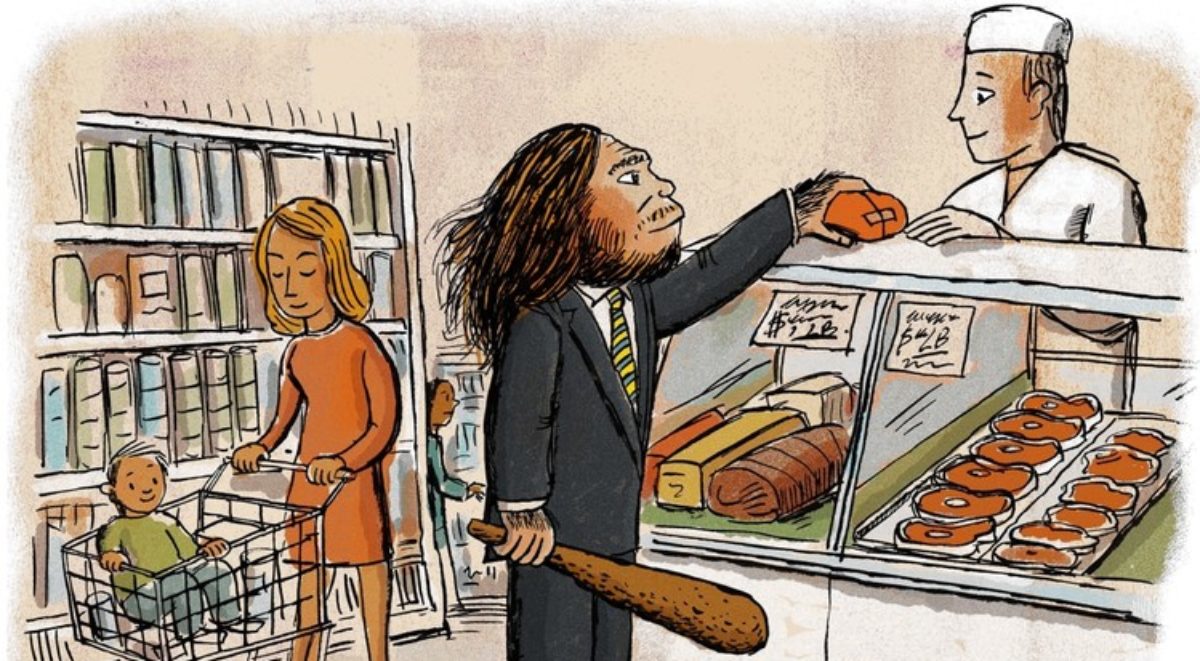Dr. Zuk starts the chapter by pointing out the anomaly that is the human baby. Baby monkeys and apes are born able to do things that human babies can’t even fathom. Numerous scientists believe that human infants are born prematurely as a consequence of our large brains. Human beings invented childhood.
She goes on to explore the dynamics of caring for a baby. In foraging societies, mothers keep their babies close to them even when they are digging for roots. In contrast, babies in hunter-gatherer communities spend a substantial amount of time being held and cared for by someone besides their mother. This social form of parenting is termed “alloparenting” and is thought to be the reason that humans can wean babies early and produce many children. She extends this concept and reveals that humans are “cooperative breeders” and provides the example of meerkats. A major difference is that human females are quite opportunistic in their use of alloparents.
Dr. Zuk provides evidence that reveals a larger nuclear family that includes grandmothers, aunts and older siblings. Among the Gusii agricultural people in Kenya, children are found to be better adjusted, empathetic, and and independent if that had strong attachment to at least one other person besides their parent. Another study showed that Israeli and Dutch children are better off with 3 secure attachments. However, she also recognizes the conflicting research on whether or nor more or less help is actually beneficial. For the Dogon people of Mali, a kin group that extends beyond the nuclear family lead to a child being less likely to survive. This was attributed to increased competition for food and resources. Moving along, she discusses more specifically on the role that fathers and grandmothers play when it comes to childcare and the family unit.
The chapter discusses the very interesting field of evolutionary pediatrics which takes an evolutionary perspective on child raising. The field proposes that infants have the same needs that they had for the past million years ago and that we have to satisfy these needs within our industrialized environment. James McKenna is major proponent of this claim. An interesting point of McKenna’s research reveals that babies evolved to sleep in social environments. He advocates for co-sleeping in order to strengthen the bond between parent and child and to ensure that baby breaths better and feeds properly. Dr. Zuk emphasizes the plasticity of human behavior and the variation among infants and their parents.
